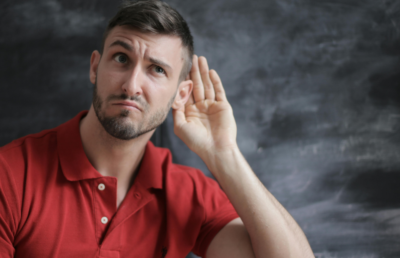As effective communication is crucial in childhood development, untreated hearing loss can have a major impact on the entire life of a child. Firstly, it can cause delayed language and speech development, which usually results in lower academic achievement. Secondly, communication difficulties can often lead to social isolation and poor self-esteem. The combination of low academic and social achievement usually affects career choice, which could determine the trajectory of a person’s whole life.
Hearing loss occurs in one to three out of 1000 babies and affects approximately three million children in the U.S. – 1.3 million of them are under the age of three.
Any degree of hearing loss, even mild, can place children at risk. However, early identification and intervention can make a huge difference. Problems with hearing need to be discovered as soon as possible after a baby is born, so that if there are any issues, they can be corrected with the use of an appropriate device. This way, the child won’t experience a gap in the ability to perceive their environment and will be able to develop normal speech and language.
Hard-of-hearing children who receive optimal, early services are able to catch up and keep pace with their hearing peers.
As babies aren’t aware enough to notice and communicate hearing loss, parents need to be vigilant for anything unusual in the development of their children and take them to a test as soon as they notice anything out of the ordinary.
Warning signs to watch out for:
According to the National Institute on Deafness and Other Communication Disorders (NIDCD), the first three years are a critical time for acquiring speech and language skills. This is when the brain is developing and maturing, making it a prime time for absorbing language.
During these crucial months, pay attention to see if your baby meets the following milestones.
From birth to four months:
- React to loud sounds and respond to your voice, smile, cooing, or comforting.
From four to nine months:
- Smile when spoken to, notice toys that make a loud noise, and turn their head towards familiar sounds.
- Start making some babbling noises and seem to understand hand motions like the “bye-bye” wave.
From nine to 15 months:
- Babbling even more and attempting to repeat simple sounds, use their voice to get your attention, and start responding to their name.
From 15 months to two years:
- Start saying a few simple words and point to body parts or toys when you ask.
- Try to name common objects, listen with interest to sounds, songs and stories, and start following basic commands.
After the first two years:
- Start speaking, understand easy sentences and respond to them appropriately.
If you think your child might be experiencing hearing loss, take them in for a hearing test right away. Tackling the problem sooner rather than later can make all the difference in your child’s development.
Another main takeaway is that the earlier hearing loss is discovered, the more you can save in treatments. Treating hearing loss at birth for one child saves around $400,000 in special education costs by the time that child graduates from high school.
And if you do come in for a hearing test and it turns out there are no issues after all, it will give you peace of mind and will be worth it so you know your child won’t fall behind at school due to something that could have been discovered earlier.
What to expect from a hearing test?
During an evaluation, the audiologist performs a variety of tests to determine the degree and type of hearing loss your child may have. Afterwards, they will explain the results, provide recommendations, and answer all your questions. If your child needs a hearing aid, they will also ensure the device is worn properly, so your child can make a huge improvement and has the same opportunities in life as their hearing peers.
Ready for an appointment?
If you’re worried that your child might be experiencing hearing loss, contact us today to schedule an appointment and improve their quality of life.





